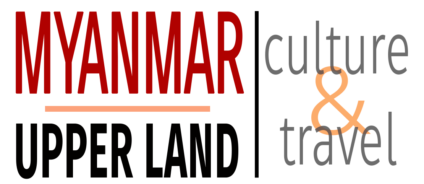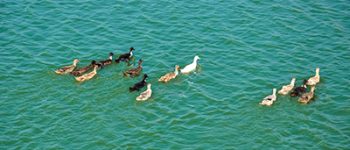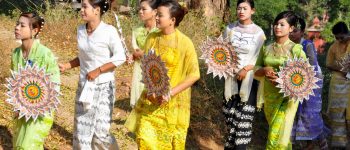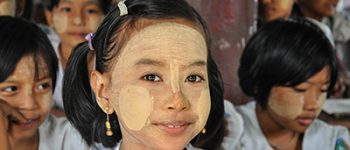Sustainable tourism checklist for Tour Guides
Tour leaders, Local Representatives and Tour Guides can be regarded as a specific type of supplier or employee. They are the front-line players in the tourism industry. They can transform a tourist visit from a tour or visit into an experience. The extent to which tour leaders/guides succeed in transforming a visit into an experience depends on their intercultural skills.
On that regards, tour leaders shall be trained in advance responsible tourism principles, the importance of local tourism contexts and encouraged to be proactive on sustainability issues.
However, here in Myanmar especially in Mandalay, where Myanmar Upper Land | culture & travel [MUL] based, is not accessible to find yet the advanced level certified training on those above specific issues for local tour guides since after they have attained the official license together with the 2 and half months regular tour guides training. Nowadays in Myanmar, some small private training has been rising and offer to local tour guides/leaders, including valuable information on the local destination knowledge of tourism, particularly the tour guide competencies in general.
In the meantime, to address this challenge, MUL provided “the Sustainable tourism checklist for guides/tour leaders” with the reference of International Guidelines. Then we, Sustainable coordinators of MUL together with local tour guides, used to review those checklists and practice together at our office. With this approach, MUL tour guides are well introduced to the best sustainable practices. We convinced that they could promote and recommend when leading tours in environmentally and socially sensitive areas. Thus, the programme can be made more sustainable.
Therefore, we, Myanmar Upper Land | culture & travel provided Sustainable tourism Checklists as a toolkit to train or help guides/tour leaders with this crucial issue.
Persuade Travellers on the Importance of Sustainable Tourism
- Set a good example (otherwise not credible)
- Do not come across as preaching
- Give examples of positive and negative effects of tourism on the destination
- Choose a suitable moment (start of the trip or when the subject comes up)
- Dose, foster understanding, keep it light
- Distinction necessary (take a position) and desirable behaviour (more nuanced, stimulate discussion)
- Show appreciation for positive behaviour/commitment
- Avoid cultural stereotypes
Means of TRANSPORT in a sustainable way
- For short and medium distances, the bus and train are environmentally friendly and comfortable alternatives to the car and plane.
- An internal flight is quicker, but by travelling on a local train or bus you are guaranteed adventure, you see a lot of the country, and you can make contact with the local population travelling with you. Therefore, try to avoid internal flights.
- Use local means of transport and public transport as much as possible. It is often cheap and is a unique means of travel.
- Ensure that chartered vehicles are suitable for the number of participants to prevent the vehicle from being half full and relatively more emissions per passenger.
- Persuade the local transport organizations not to leave the engine running when the passengers are not in the vehicle. Buses can generally be cooled down or warmed up rapidly, just before the passengers’ board.
Means of STAY in a sustainable way
- Be aware of environmentally friendly accommodation, for example from a
- database or certification label.
- Give information about the sustainable measures that the accommodation concerned takes in the field of water, waste and energy savings, social rights of the staff, cooperative arrangements with local development organizations/NGO and suppliers (for example of local foodstuffs).
- Other sustainable tips:
- Do not leave taps running unnecessarily
- Take a shower instead of a bath. Some hotels already remove the bath plug in advance. Exceptions apply for the elderly and parents with children.
- Switch off the lights and heating/aircon when leaving the room
- Use towels and bed linen for more than one day
Whatsoever, many destinations in Myanmar have to contend with water and/or electricity shortages. Encourage participants/travellers to take this into account.
Utilizing Nature Resources if in case
- Be economical with natural resources, such as fossil fuels, gas, wood (coal), and water, certainly where there are shortages. Inform participants/travellers about this.
- For cooking, the preference is for gas, then charcoal (bought from the local population) and as the last choice dry wood.
- Preferably use biologically degradable soap.
- Report any cases of waste of natural resources somewhere to MUL and propose environmental protective measures yourself as well.
Drinking Water and Food during on tour
- Prefer drinking water from the tap or pump (if there are no health risks). Plastic bottles of mineral water which produce a lot of environmentally harmful waste. There are reliable methods for filtering water (including filters, chlorine tablets, iodine drops). Check the possibilities carefully and inform the travellers about them.
- Use local foodstuffs instead of imported products as much as possible. It has less impact on the environment (less transported/cooled, etc.), it helps the local economy, and it is an excellent way to taste the local specialities. Exceptions are meat from protected species or overfished species of fish.
Waste Policy
- Gain insight into the MUL’s waste policy at the destination concerned and inform the travellers about this.
- Make arrangements with local partners and travellers: cause as little
- environmental pollution as possible
- Limit the amount of waste (for example, by reuse, minimizing disposable articles)
- Use existing possibilities for waste treatment (return used batteries)
- Make a distinction between the various types of waste: biologically degradable (back to nature), recyclable waste (reuse of bottles & cans), burning other waste (such as toilet paper and plastic). Otherwise, it stays hanging around
- Appeal to agreements between MUL and its contracted suppliers. If they do not exist but are desirable, you can pass this on to MUL.
Visits to Nature Reserves
Follow the designated rules concerned and communicate them to the travellers:
- stay on the paths (zoning/route)
- do not disturb flora & fauna
- explain changes in flora and fauna as a result of climate change
- observe opening times
- use a local guide
- follow park/locations’ guidelines concerning waste management
- do not make any unnecessary noise
- be careful with fire (campfires are often prohibited)
- keep away from wild animals and do not feed them
- important: the bad example of others is no excuse for bad behaviour
- Explain about nature conservation in the area, so that the vulnerability of nature is understood and a basis is created for protecting nature.
- Visit less frequented areas to spare heavily frequented areas.
- Report abuses to administrative concerned and MUL
- The above points not only apply to the nature reserve but also UNESCO heritage sites, for example.
City Visits in a sustainable way
- Use non-motorised and/or public transport, such as a bicycle (taxi), scooter, train and bus.
- if present, use sustainable transport initiatives introduced, such as the bicycle.
- Pay a visit to the famous sights at a quiet time, to reduce crowding at the
- attraction concerned and to increase the travellers’ enjoyment
- Give the travellers a unique experience by engaging them in the local culture, making contact with the local population, trying the local delicacies and, if possible, visiting local festivals and markets. Make it interactive, so that the travellers share in the local life, for example, by trying a local craft.
- Explain initiatives which indicate the sustainable character, such as UNESCO protected heritage sites, accommodation with fair trade or eco-label.
- Advise travellers about habits and customs such as clothing regulations/dress code when visiting religious shrines.
Buying Souvenirs
- Talk about bad souvenirs at the destination concerned. Emphasize underlying interests: the protection and conservation of nature and culture
- Two categories: endangered animal and plant species in Myanmar and objects belonging to the cultural heritage of a country.
- Cultural heritage: archaeological, historical, religious, art and everyday objects. Pick nothing up and take nothing away: cultural heritage belongs in the country of origin.
- Trade is prohibited: fine and seizure at customs checks- Inform the travellers which souvenirs can be bought there, such as traditional handicraft made by the local population. These also help the local economy.
When contact with the local community
- The keyword is RESPECT: for other lifestyles, beliefs, local customs/traditions, manner of dress, etc. Adapt to this as much as possible and ask the travellers to do the same.
- Contact with the local community may be encouraged: both parties can learn from it, and it promotes understanding and respect for other cultures.
- By visiting local events and festivals, the travellers can engage themselves, as it were, right into the culture concerned as observers, which is often felt to be an extraordinary experience and can also reinforce the feeling of solidarity with the local population. Check in advance if your presence is wanted and make clear agreements about what is expected of the group.
- Encourage travellers to make their expenditures as local as possible.
- They will have much more valid experience and also contribute to the local economy, for example, by eating in local restaurants and shopping at souvenir stalls. However, also, for example, switching from coca cola to local fresh fruit juices.
- Advise on clothing regulations. Make a distinction between desirable (clean, covering clothing) and necessary regulations (such as head covering, torso and legs, and taking off your shoes when visiting restricted religious places).
- Have an insight into the culture and religious rules of behaviour at the destination concerned, such as the manner of greeting, eating customs, contact between persons of the other gender and other local norms and values. Talk about these to travellers so that instructions and regulations can be obeyed.
- Staged authenticity (acted authenticity): The lifestyle or characteristics of the cultural identity are adapted to the wishes of the tourists. Some cultural aspects are thereby commercialized and edited into so-called native shows. Inform the travellers about this and consider it can also be otherwise, where the local population are involved as equals in the cultural exchange.
Photography Culture
- Ask permission before taking photographs (or) obey prohibitions on photography.
- Explain that local people have the right to refuse to be photographed and explain which cultural, religious or personal considerations may play a role.
- Expose the idea that tourists have the right to photograph because they paid for the trip.
- Never offer to pay money for photographs yourself. Try to avoid this and look for other solutions.
- Wherever possible, try to make arrangements in advance (price) concerning photographs.
- If travellers agree to send photographs, encourage them actually to keep to these agreements.
Dealing with Culture Shock
This’s a situation of mental discomfort, caused by over-tiredness in combination with an excess of travel impressions. Tips for dealing with this:
- Avoid busy places where there is much poverty.
- Adjust the travel tempo (with sufficient moments for rest).
- Look for places to cool off in the mountains, at lakes/rivers and the sea.
Local Development Project/NGO and Institution Visits
- Proposal for a visit must come from the care institution/project itself. Make clear agreements concerning what is and what is not possible to minimize disorder. For example, to raise awareness of a social problem or to raise funds.
- At projects/institutions that are not care related, such as the sewing work of a women’s’ cooperative or a tree nursery, there is less objection to a visit from outside. For instance, by cooperating with local environment/nature related NGOs, travellers can pay a visit to their projects and support them financially through donations.
- Always make arrangements in advance concerning the visit (guided tour,
- donation). Enquire where the primary need is.- If travellers want to support a local development project, separate it from the MUL and bear in mind that no false expectations are awoken.
Community – based tourism in Myanmar
Some travel programs of MUL, may pay a visit to a local community and be a part of daily life, without causing a disruption. The community profits (work & income) from the arrival of tourists. The level of comfort is often minimal, but on the other hand, it produces real contact, which can be a captivating and instructive experience for both parties.
- Organize your visit to a community-based tourism project via the local
- organizations/village administrative team that offer this
- Prepare the travellers well so that they have realistic expectations and behave respectfully towards the host community.
- By explaining the background of the project, about the programme and the arrangements made (such as compensation and photography), the visit can make a positive contribution to the project.
- Visits are arranged so that more people can profit from tourism without there being pressure on certain villages.
Visit Native Peoples
Native people are the original inhabitants of an area and often live close to nature, as they have done for centuries. The way of life is centuries old, as is the language, the traditions and rituals. They often have a marginal position in society. They also come increasingly into contact with tourism, which puts their culture under even more pressure. MUL’s consideration is to take the following points when visiting native peoples:
- Always ask for permission in advance to visit native peoples
- Inform the travellers thoroughly so that an interactive exchange of cultures can take place instead of a purely unilateral contact.
- Be alert for harmful effects and report these to the travel organization
- An organized visit is preferable to an unexpected visit so as not to disturb daily life. Agreements concerning price and photography are made, both parties know where they are, and a guided tour is often given.
- Use an experienced local guide as much as possible who is part of the people who will be visited so that both parties can profit from the meeting. Cultures are not static and through globalization cultures (both ‘host’ and ‘guest’) change even faster. Guides must be able to interpret these changes correctly.
Initiatives are increasingly being taken to raise the awareness of the local population (including native people) to tourism using cooperative associations with various parties, such as NGOs, local governments and the local travel industry. By being informed of these initiatives, the travellers can be informed about this, and a visit may also be made.
Recommend on Bargain about money
In Myanmar and many non-Western countries, products have no fixed price. Bargaining about the price is expected there.
- Tell the participants how they can play the bargaining game positively (with fun and respect).
- Wherever possible, give guidelines and insights into the real value of products. There is no right or wrong amount: what counts is that the buyer and the seller are both happy with the bargaining.
Giving Tip Culture
Tips are generally an essential supplement to low local wages in Myanmar and non-Western countries. It means that a relatively high tip is expected from travellers in proportion to the low wages. Giving tips must be considered as a direct form of reducing poverty: the money goes straight to the guide/cook/driver and their dependents (family) also profit.
- Give information about the background of low wages and seasonal labour so that participants understand about giving tips. The giving of a tip is not an obligation, but persuade participants of its importance.
- Follow the guidelines concerning the amounts of tips from your travel organization (insofar as there are any). Guidelines often differ for each destination, service provided, duration of the travel, size of the group, etc.
- Make a clear distinction between tips that can be paid from a collective group pot (everyday activities) and tips to be given individually (to room-maids, luggage porters).
Begging
In many countries, beggars are part of the everyday scene, and in some places, tourists an ideal target. That can produce extremely confrontational situations. MUL encourage travellers to give something or preferably not in the following ways.
- Use the criterion of whether begging is part of the society or if it is learned begging behaviour that is solely aimed at tourists.
- In the country like Myanmar, supporting proper person is prescribed by a religion or philosophy of life, for example, gifts to monks.
- Children are sometimes exploited to beg. Be alert to extreme forms of exploitation of children and do not cooperate with this.
- The well-intentioned giving by tourists encourages begging. Discourage
- participants expressly from giving sweets, balloons, etc. to children.
- If travellers still want to give something, do this via the parents, teacher or local guide. A donation can also be given to a school, orphanage, hospital or a nature development project.
Sexual Exploitation of Children
- Inform the travellers about the cultural difference between love, marriage and relations.
- If sex tourism occurs at the destination concerned, inform travellers about this, which places can better be avoided, and that child sex tourism is illegal and can lead to prosecution at the travel destination.
- If there is a grave suspicion that a traveller is guilty of sexual abuse of a minor, MUL has a protocol that MUL as a tour leader/guide can fall back on. MUL never make difficult decisions with critical consequences on our own, but in consultation with official concerns.
Advice for after the trip:
- Report abuses that have occurred during the trip to MUL so that measures can be taken. Examples: illegal dumping of waste, disruption of flora and fauna, wasting of natural resources, lack of respect in dealing with the local population, etc.
- Propose measures yourself for the burning questions at the destination
- Describe how the travellers react to information concerning sustainable tourism and where necessary, suggest points for improvement.
- Propose local, sustainable tourism initiatives to the suppliers and local travel agents.
- Investigate whether there are possibilities for including less visited regions/activities in the programme so that there is a more varied offer for the tourist and better distribution of tourist flows. There is, therefore, less crowding in popular areas and more people can profit from tourism.
——————
Here are the Risk management plans for the traveller by MUL if something occurs on tour.
- the safety of travellers and employees/tour guide
- secure systems to communicate with all persons within the facility and the destination
- the security of buildings, facilities and equipment in the event of a disaster/emergency/crisis
- providing trained liaison personnel to the disaster management agencies (or) Official Administrative concerns during response and recovery operations, as required
- contribute the resources to support response by MUL office and recovery operations procedures for return to normal business activities after the disaster/emergency/crisis operations.
Sustainable Team
Myanmar Upper Land | culture & travel
(Last updated on June – 2019)
Ref: Sustainable tourism checklist for guides/travel leaders (Fair Tourism)




